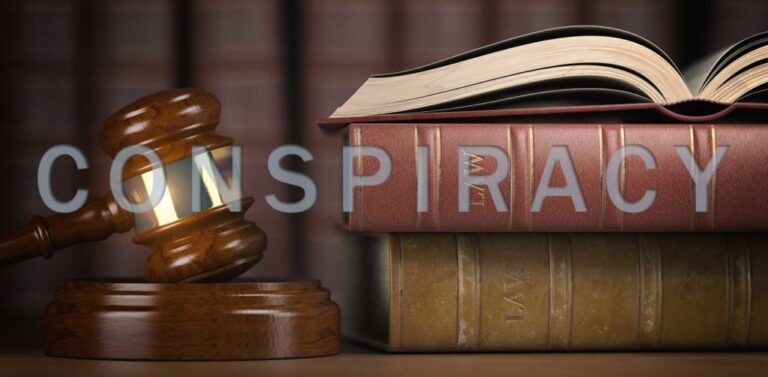In criminal law, conspiracy charges are made when it is said that two or more people planned to do something illegal together and took steps to make it happen.
In July 2024, Chinese billionaire Guo Wengui was found guilty of several crimes, including conspiracy to commit wire fraud and securities fraud. He was found guilty of cheating investors out of about $1 billion through several schemes that included unregistered offerings and cryptocurrency projects.
When you are charged with conspiracy, consulting a lawyer is necessary. They look into what the alleged agreement between the people is and look for problems with the evidence collected.
Conspiracy lawyer Patrick Crowe states that a criminal defense lawyer will attempt to have the charges dropped or reduced if the prosecution cannot prove your guilt beyond a reasonable doubt.
A lawyer will devise a defense to prove the prosecution’s case is wrong and that you are innocent. The outcome of your case can depend on how the attorneys handle plea deals and represent you in court. This article will look into these important areas more.
Understanding the Nature of Conspiracy Charges
Typically, there is a conspiracy charge every time two or more persons agree to commit some unlawful act.
A Miami federal defense attorney cited an example involving drug dealers who have agreed to transport drugs across state lines. For example, they might plan how to transport drugs, coordinate how they are distributed, and stay away from the police. Authorities will charge people with federal conspiracy if they discover the conspiracy plot and make arrests. Planning a meeting to talk about drug transportation could help the plot go even further. Sometimes, the purchase of transportation equipment is involved. If found guilty, they would get long prison terms and massive fines.
You can be charged with conspiracy even if you do not actually commit the crime. Planning or intending to commit a crime on the basis mentioned above will be considered a conspiracy. Any kind of discussions or brainstorming may give rise to an accusation of conspiracy.
To prove you didn’t join the agreement, the prosecution must show you knowingly joined and were involved in the illegal goals. The prosecution often charges some individuals with conspiracy while simultaneously charging others with another crime, thereby compounding the issue.
Gathering and Analyzing Evidence
When trying to examine a conspiracy case, evidence gathering and analysis are critical aspects of your defense.
You need to collect all documents, communications, or witness statements that go in support of your position. This approach translates to searching phone records, emails, and meeting notes to check if there’s any inconsistency in the prosecution’s version.
Engage expert witnesses who may offer clarity in some complex areas of the evidence under examination.
Be mindful of the context of every piece of evidence, as this can change its interpretation. Cross-reference them against other data sources to generate patterns and contradictions to back up your narrative.
Developing Defense Strategies
Developing effective defense strategies is central to addressing the complexities of conspiracy matters. Identifying weak links in the key prosecution case should be your starting point. Evaluate the evidence. During evaluation, detect any inconsistencies or gaps that could potentially contradict the prosecution’s assertions.
Another point to establish is an alternate narrative, examining your intent and actions to prove that you did not participate in a conspiracy. You can bring in expert witnesses who will support your case.
Close cooperation is important. Understand how the lawyer views your case to help devise a customized legal strategy. The success of your case can hinge on investigating potential defenses. These possible defenses can include the identification of the defendant’s knowledge or coerced existence.
Negotiating Plea Deals
Negotiating plea deals can be the smart way to work if the conspiracy case against you looks strong.
A lawyer will look through the merits and demerits of the case. They will bargain with the other side to see what plea deals may be possible.
Highlight the mitigating factors or weaknesses they have in their case to strengthen your position.
Representing Clients in Court Proceedings
Legal counsel in conspiracy cases will conduct a thorough preparation of a defense in your favor and must articulate that defense on your behalf. They will review the evidence provided, highlight inconsistencies in arguments put forward by the prosecution, and look for less-than-convincing proofs.
Your case must be constructed in a way to plant reasonable doubt in the minds of the jury. Your narrative must be based on circumstances that implicate the prosecution. A lawyer will cross-examine witnesses to discredit them and their testimonies.
Throughout the trial, your defense attorney must stay engaged and reactive, having his or her strategy evolve with any new developments and then calling expert witnesses whenever appropriate to strengthen your defense.
One of the primary goals of a lawyer is to get your rights protected and provide you with a fair trial.


